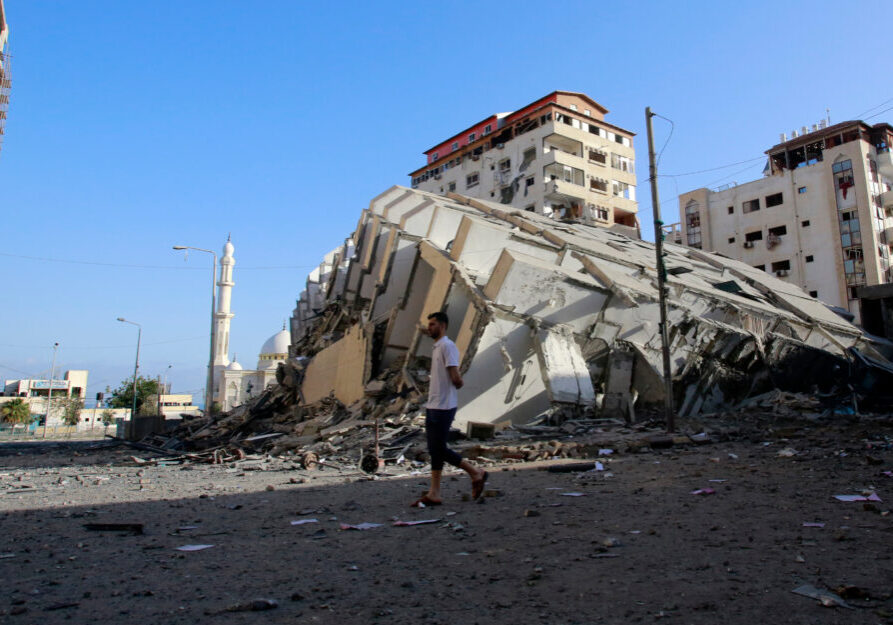Australia/Israel Review
The Biblio File: The Betrayers
Aug 27, 2010 | Paul Monk
Palestine Betrayed
by Efraim Karsh, Yale University Press, 2010, 342 pp.
By Paul Monk
In four decades of reading about international affairs and Middle Eastern geopolitics, I do not think I have come across a work of history that more fully illuminates the true sources of Palestinian terrorism and irresolvable conflict with the realities of Israel than does Efraim Karsh’s Palestine Betrayed. If ever a book merited the description tour de force, this is it. The pity of it is that only those who are already favourably disposed to the State of Israel are likely to so much as read it.
Unless one starts from the groundless assumption that Palestine naturally belongs exclusively to Arabs (and Muslim Arabs at that), there can be no basis for the consistent and violent rejection by the Arabs of the idea of a Jewish state in Palestine. Yet such rejection has been the response of the Arab world and of the reactionary leaders of the Palestinian Arabs to the Balfour Declaration (1917), the League of Nations mandate (1920) and the United Nations Partition Resolution (1947); to say nothing of the tireless efforts of the Zionist movement, from the late 19th century all the way through to the 1940s and even beyond to persuade the Arab leaders to form a cooperative and constructive partnership with the Jewish State for the greater good of the Middle East. Karsh’s book demonstrates all of this with what can only be called – looking at Arab behaviour – damning lucidity.
The first and most fundamental historical fact that Karsh establishes is that Zionism was in no sense predatory and was by no means the tool of “Crusaders” or Western imperialists intent on colonising the Arab world. Indeed, the irony of claims to the contrary is that the British, who exercised the League of Nations mandate in Palestine between 1920 and 1948, were decidedly inclined to favour the Arabs, not the Jews, in the conflict over land in Palestine. Nor was this for any honourable or principled reason, but purely for reasons of perceived expediency. This, also, Karsh shows with meticulous attention to detail. In the pursuit of their muddled geopolitical aims, the British authorities succeeded only in making a mess in the Middle East, as they had at the same time in the Indian sub-continent, with another scheme for partition.
The real predators, Karsh shows, were the Arab states themselves, not least among them the Hashemites, in both Transjordan and Iraq, who scarcely had any historical claim to the lands of Palestine, but nourished overweening ambitions to build a pan-Arab empire where the Ottomans had ruled for centuries. The Syrians and Egyptians, similarly, harboured ambitions for grabbing pieces of Palestine as the League of Nations mandate expired and the British withdrew and none of them exhibited the least intelligence or humanity as regards the likely fate of the Palestinian Arabs in the event of a war to the death with the Jews. This is the thrust of Karsh’s title – Palestine was betrayed, not by the British (though they did badly), not by the United Nations, not by the Zionists, but by the Arab leaders and especially the leaders of the Palestinian Arabs.
When the United Nations Partition Resolution was passed on Nov. 29, 1947, Jews danced in the streets throughout Palestine and Golda Meir, a prominent Zionist official who was to later become prime minister of Israel, declared to thousands of them in Jerusalem, “Our hands are extended in peace to our neighbours. Both states can live in peace with one another and cooperate for the welfare of their inhabitants.” That this did not happen is exclusively the responsibility of the Arab leaders, whose response to the UN resolution was to launch all-out war on the nascent and very small State of Israel. Meir knew, as did the other Zionist leaders, that neither the Palestinian leaders nor the Hashemites, nor the Egyptian and Syrian leaders, intended to accept the hand of peace; but it did not stop them from extending it. Perhaps the greatest service Karsh renders as an historian, is patiently documenting the record of their attempts, over decades, to gain Arab acceptance of Jewish autonomy on peaceful terms.
But perhaps the most insidious myth propagated by anti-Zionist and antisemitic sources for decades since 1948 has been the notion that the Jews engaged in systematic and premeditated ethnic cleansing in 1948, driving out hundreds of thousands of Palestinian Arabs to make way for a pure Jewish state on Arab lands. I had, until I read Karsh’s book, given a degree of credence to this tale, though tending still, in all the circumstances, to feel sympathy for the Jewish cause. The single most potent piece of evidence in this version of events has long been the massacre at Deir Yasin carried out by the Irgun, on April 9, 1948. Karsh shows, however, that Deir Yasin was altogether the exception and was not an act of official Zionist policy at all. Elsewhere, the premeditated and systematic policy was an effort to encourage the Arabs to (1) accept the partition plan; (2) remain within the borders of the Jewish state if they so desired and on equal terms with its Jewish citizens; and (3) to stay especially in their own villages and cities as the conflict began, while withholding support from those who were truly intent on ethnic cleansing – the Arab Higher Committee and the Arab Legion.
One of the beauties of Karsh’s book is that he provides a set of five maps which show the successive evolutions of the territorial division of Palestine. These maps show, first the British administrative divisions of Palestine under the League of Nations mandate; the administrative divisions of the Levant under late Ottoman rule; the Peel Commission Plan for the partition of Palestine, of July 1937; the United Nations Partition Plan of 1947; and the armistice lines in Palestine at the end of the Arab war to destroy Israel in 1948-49. The final three of these maps show that, had the Palestinians – or their reckless and territorially ambitious Arab overlords – accepted partition in 1937, Israel would have been a tiny state extending only about 40 kilometres to the south of Tel Aviv, excluding Jaffa and confined to the old Galilee, Haifa and Lydda Districts and the Tulkarm Sub-District of the old British mandate. The Arab state would have included the whole of the present West Bank, most of the Jerusalem District, the Beersheba Sub-District, the Gaza District and the Negev. Had the Palestinians accepted partition in 1947, they would have no longer had the Beersheba Sub-District or the Negev, but would have gained a good deal of the Galilee District. Having been goaded and led to war, they ended up with only the West Bank, excluding Jerusalem and the Gaza Strip – but no State of Palestine at all.
The tragedy of the Palestinian Arabs is not that Israel was established, but that their benighted leaders insisted on refusing any accommodation with Israel and betrayed them to defeat and dispossession. As Karsh shows, the Palestinians fled because the Arab leaders either fled, or urged them to leave or cleared them out of the way in anticipation of a genocidal pan-Arab onslaught against the Jews. His accounts of how all this unfolded in Haifa and Jaffa are particularly detailed and impressive. The result was that hundreds of thousands fled and the obdurate refusal of the Arab leaders to come to terms with the legitimacy of the state of Israel made it entirely impossible for Israel to allow a “right of return” after the armistice. Showing a criminal disregard for the well-being of the Palestinian Arabs, Arab leaders treated them as expendable pawns in an irrational campaign to annihilate Israel. The execrable Secretary-General of the Arab League, Abdel Rahman Azzam irresponsibly declared in the midst of negotiations over a settlement to the 1948 war that sooner or later the State of Israel would be destroyed and that, in the event of repatriation, Israel would, fortunately, be placed in an impossible situation by the sabotage its Arab inhabitants would be well-placed to carry out against it.
Until I read this book, I was inclined, while partisan to the cause of the democratic State of Israel, to see the long conflict between it and the Palestinians as a tragedy of irreconcilable territorial claims. That is no longer the case. Karsh has caused the scales to fall from my eyes. I no longer see any excuse whatsoever for the violence of the Palestinian “militants” or the anti-Israeli rhetoric of the Arab states and their allies elsewhere in the world. These things are nothing but the stubborn continuation of irrational and counter-productive strategies that have long since betrayed the best hopes of Palestinian Arabs and forced Israel to adopt often condign measures for self-defence. Until or unless the Palestinians finally renounce their avowed aim to annihilate the State of Israel and embrace it as a partner for peace and development in the Levant, there cannot be a peaceful settlement of the conflict. And the responsibility for this lies squarely on the shoulders of the Arab leaders; nowhere else.
Paul Monk is Managing Director of Austhink Consulting and holds a PhD in international relations from the Australian National University. He previously served for six years at the Defence Intelligence Organisation, as an analyst focusing on East Asia. He is the author of four books, including most recently, The West in a Nutshell: Foundations, Fragilities, Futures (Barrallier Books, 2009).
Tags: Israel






